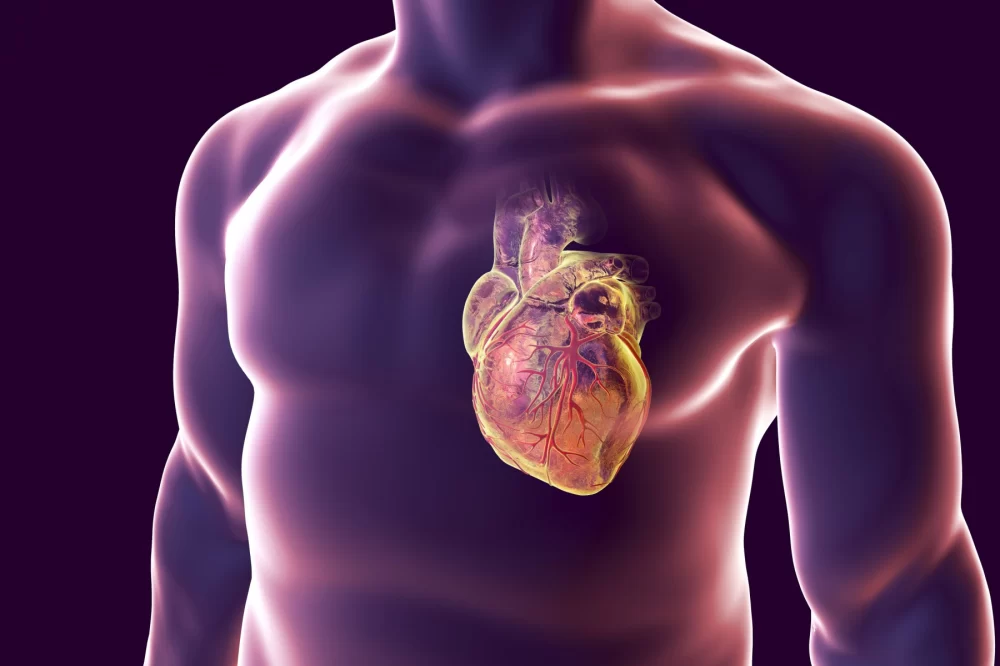How to Protect Your Heart Health through Healthy Living
- Understanding Heart Health and Its Importance
- The Role of Healthy Living in Heart Health
- Exercise and Diet: The Heart’s Best Friends
- Managing Stress for a Healthier Heart
- Real-Life Stories of Heart Health Transformation
- Effective Ways to Protect Your Heart Health
Understanding Heart Health and Its Importance
Your heart is at the center of your overall health, and maintaining good cardiovascular health is crucial for a long and active life. Heart disease continues to be one of the leading causes of death globally, but the good news is that a significant portion of heart-related issues can be prevented with healthy lifestyle choices.
Heart disease does not develop overnight. In most cases, it is the result of years of poor lifestyle habits such as smoking, unhealthy eating, and lack of physical activity. Recognizing the importance of protecting your heart health through healthy living can make a world of difference in reducing the risk of cardiovascular problems.
The Role of Healthy Living in Heart Health
Healthy living is not just about dieting or exercising occasionally; it's a comprehensive approach to life that involves taking care of both your body and mind. Healthy living plays a critical role in protecting your heart health by preventing risk factors such as high cholesterol, high blood pressure, and obesity—major contributors to heart disease.
Incorporating positive habits such as staying active, eating a balanced diet, managing stress, and getting enough sleep can significantly lower your risk of developing heart-related conditions. It’s never too late to start living healthier; small changes can have lasting impacts on your heart health.
Exercise and Diet: The Heart’s Best Friends
One of the most powerful ways to protect your heart health is through regular exercise and a nutritious diet. These two elements work hand in hand to strengthen the heart, reduce cholesterol, and maintain a healthy weight.
Exercise: Regular physical activity, such as brisk walking, jogging, cycling, or swimming, can improve cardiovascular health by enhancing blood flow, lowering blood pressure, and increasing the heart's efficiency. Aim for at least 150 minutes of moderate exercise or 75 minutes of vigorous activity per week.
Diet: Eating a heart-healthy diet can make a significant impact. Focus on incorporating more fruits, vegetables, whole grains, lean proteins, and healthy fats (like those found in fish, avocados, and nuts). Reducing your intake of processed foods, trans fats, and sodium can also help prevent heart disease.
A balanced diet combined with regular exercise helps keep your blood vessels clear of plaque buildup, ensuring that your heart doesn't have to work harder than necessary.
Managing Stress for a Healthier Heart
While exercise and diet are key components of heart health, managing stress is just as important. Chronic stress can lead to high blood pressure, inflammation, and other health problems that increase the risk of heart disease. Finding ways to manage stress is essential for maintaining a healthy heart.
Effective stress management techniques include mindfulness practices like meditation, yoga, and deep breathing exercises. Additionally, ensuring you have time for relaxation, hobbies, and social connections can help reduce stress levels. The goal is to find balance in your life that allows you to remain calm and centered even during challenging times.
By managing your stress, you are not only improving your mental health but also significantly reducing the risk of developing heart disease.
Real-Life Stories of Heart Health Transformation
Sometimes, the best way to understand the impact of healthy living on heart health is by hearing real-life stories from people who have transformed their lives by making healthier choices. Take John, for example, a 45-year-old man who had struggled with obesity and a sedentary lifestyle for years. After suffering from mild chest pains, he decided to take action.
He began by adopting a heart-healthy diet, focusing on whole foods, cutting out processed snacks, and incorporating lean meats and vegetables into his meals. Additionally, he started walking daily and eventually progressed to jogging. Within a few months, he lost over 30 pounds, his cholesterol levels decreased, and he noticed a significant improvement in his overall energy levels.
John’s story is a powerful reminder of how small changes can lead to significant improvements in heart health. His success highlights the importance of staying proactive and taking control of your health before problems arise.
Effective Ways to Protect Your Heart Health
Protecting your heart health doesn’t require drastic measures; it’s about making consistent, informed choices that support your cardiovascular system over time. Here are a few effective strategies to help protect your heart:
- Get Regular Checkups: Regular visits to your doctor can help identify potential health issues early, such as high cholesterol, hypertension, and irregular heart rhythms.
- Maintain a Healthy Weight: Obesity is a significant risk factor for heart disease. Maintaining a healthy weight through diet and exercise can reduce your heart disease risk.
- Limit Alcohol Consumption: Drinking alcohol in moderation (if at all) is important for heart health. Excessive drinking can raise blood pressure and damage the heart muscle.
- Quit Smoking: Smoking is one of the leading causes of heart disease. Quitting smoking can improve your heart health dramatically within just a few months.
- Prioritize Sleep: Sleep is crucial for overall health, including heart health. Aim for 7–9 hours of sleep each night to help your body recover and function properly.
By following these heart-healthy tips, you can significantly reduce the risk of cardiovascular problems and protect your heart for years to come.
If you’re looking to take your heart health to the next level, consider incorporating heart-healthy products into your daily routine, such as supplements, heart-healthy snacks, or fitness trackers. These tools can help you stay on track and reach your heart health goals.





















